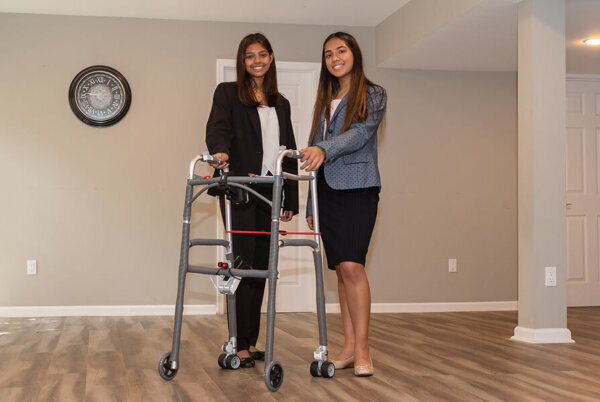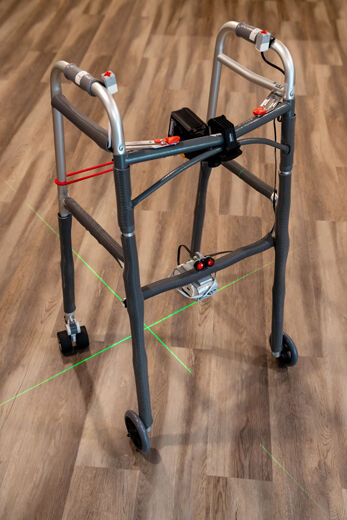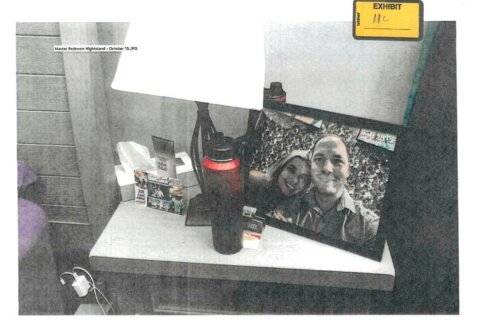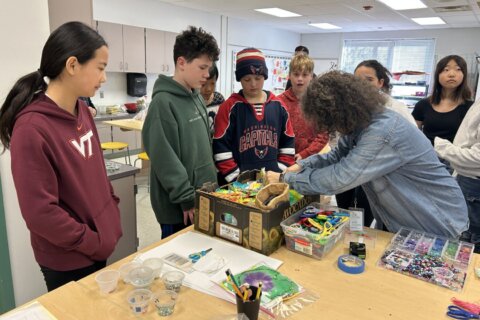Two Virginia high school students are receiving praise for what they did with their extra time during the pandemic.
Kaavya Karthikeyan and Akanksha Tibrewala, both 17, of Chantilly High School, joined forces to design an automatic walker that helps improve the mobility of people living with Parkinson’s disease.
“Parkinson’s patients, their muscles start getting stronger as they keep exercising, but the main thing is that their motivation always decreases after not being able to walk as much, not being able to move as much,” said Karthikeyan.

The walker, called AutoTrem, moves automatically by the push of a button and also has sensors that will stop the walker for obstacles. After initial testing of the device, they also added a feature that helps to stop patients from sliding on their feet while walking, something that is commonly seen among those with Parkinson’s disease.
“There’s a laser that’s found at the top of the walker that shoots down onto the ground, that allows you to pick up your feet and try to hit the laser every time you take a step,” Karthikeyan said.
Tibrewala said this project was personal for her because her late great-grandmother had the disease. In talking to Karthikeyan, her longtime friend and neighbor, Tibrewala said they wanted to do something to improve the lives of people with the illness.
“We both also share a lot of common friends whose grandparents have Parkinson’s disease and mobility issues in general. So we decided to research more about that,” Tibrewala said.
View this post on Instagram
Since designing it, the two have watched patients test the walker, who also praised the friends for the work they have done.
“Almost every single one of them mentioned that this is so much easier, and that it was so much, even one patient didn’t want to stop using the walker, we wanted to test it on a couple of different people, and one of them just didn’t want to stop using the walker,” Tibrewala said.
Both students, who share an interest in biomedical engineering, said that while this product is geared toward people with Parkinson’s disease, they hope it can also help others with mobility issues.

The two are also thinking of ways to improve the product, and at the same time, keeping it simple to operate.
One goal is to add devices that collect information about the user.
“How fast they’re using a little walker — since our walkers are also speed adjustable — how fast they’re using the walker, all this data all together will give doctors and physical therapists so much more information about their patients; and it will help them alter their treatments for the patient much better,” Tibrewala said.
The product has been so successful that the two are already in the process of patenting AutoTrem.
The walker also earned them a $2,500 prize at the Fairfax Area Student Shark Tank competition, which is sponsored by Fairfax Area 50+ Technology Committee.
The pair encourage other young people to follow in their footsteps and work to make a difference in the lives of others.
“Find a problem that you really are connected with and find a solution to that, and continue it because you never know what could happen,” Tibrewala said.
“After you create a product, there might be bumps. But after that, you’re gonna end up with a product that’s going to make you very proud, and essentially, help a lot of people; and that will be the biggest thing,” said Karthikeyan.








